Reefer Containers: A Critical Tool for Natural Disaster Preparedness
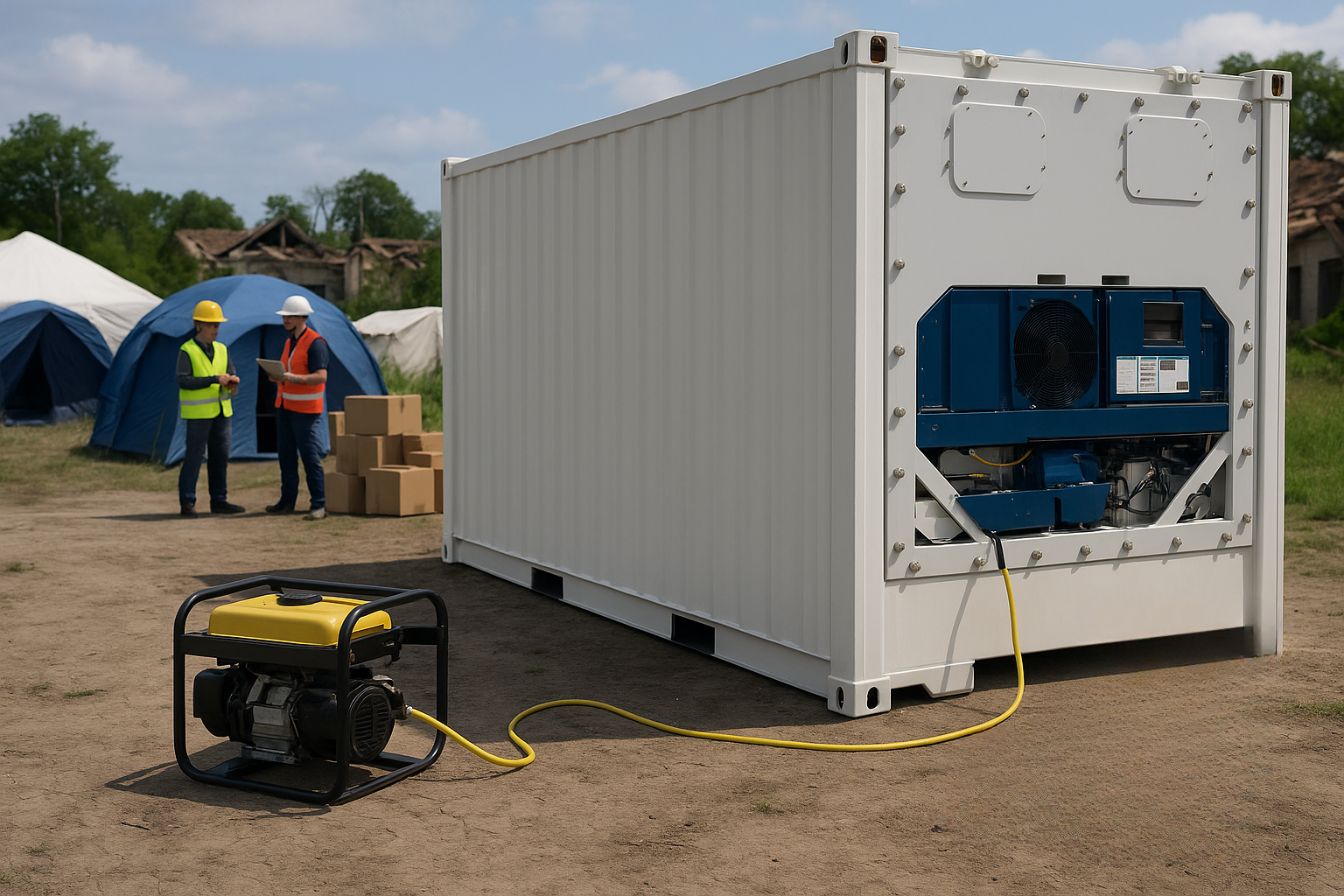
When disasters strike, communities rely on quick response and efficient resource management to save lives. Hurricanes, wildfires, earthquakes, and extended power outages can leave towns without access to cold storage for food, water, and medicine.
In these moments, refrigerated shipping containers, often called “reefers,” become essential tools for keeping relief supplies safe and usable. Their portability, reliability, and durability make them a cornerstone of modern emergency preparedness.
Why Cold Storage Matters in Emergencies
A prolonged power outage can quickly turn a manageable situation into a public health crisis. Perishable food spoils within hours if not properly stored, and temperature-sensitive medicine like insulin, vaccines, and antibiotics can become useless.
During disaster recovery, emergency crews and aid workers need a secure place to keep supplies cold and organized.
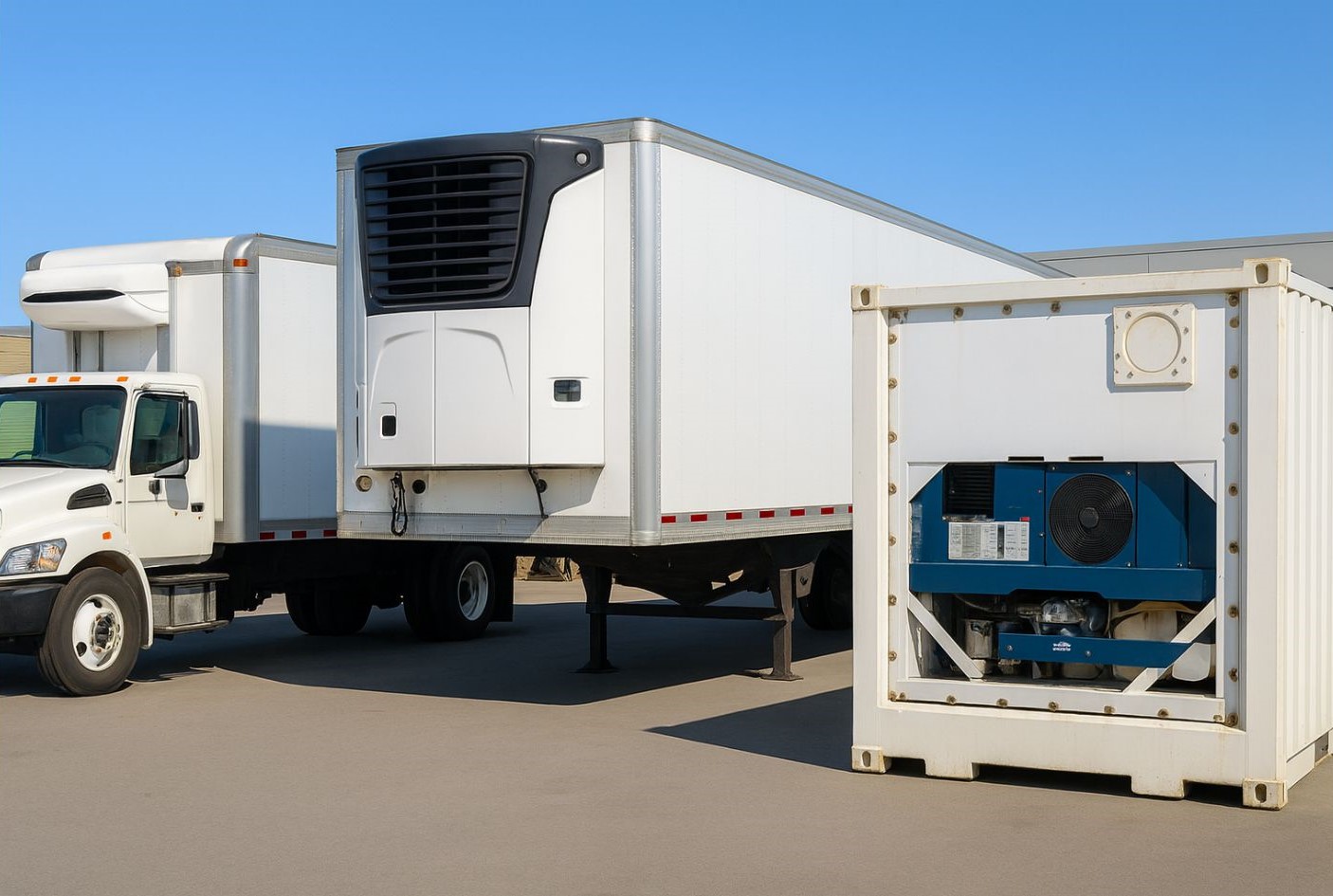
Traditional refrigeration systems depend on local power grids that are often down during disasters. Portable refrigerated containers, reefer trailers and reefer trucks provide an independent, ready-to-deploy solution that maintains safe temperatures even in remote or damaged areas.
They are built to handle harsh conditions and can run on alternative power sources such as diesel generators, solar systems, or portable battery packs.
How Refrigerated Containers Work
Refrigerated containers are steel cargo units equipped with advanced cooling systems. The insulation inside the container walls helps retain cold air, while a built-in refrigeration unit controls the internal temperature. Depending on the need, the container can be set to chill or freeze its contents.
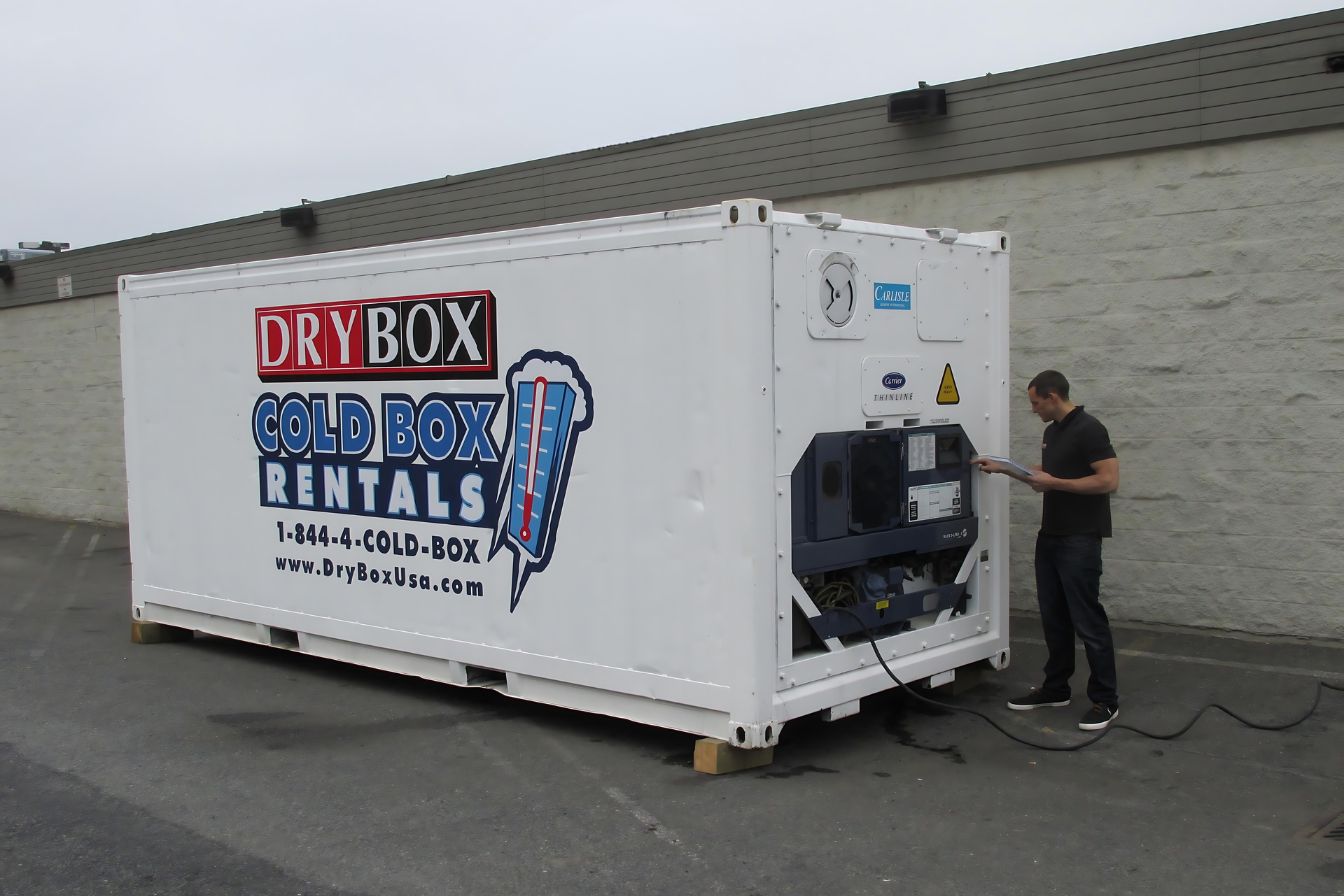
Most units plug into a standard power supply or generator, but newer models are designed for off-grid applications, making them perfect for disaster zones. These systems are highly efficient, capable of maintaining temperatures from below freezing to well above typical refrigerator levels. That flexibility allows aid teams to store everything from bottled water and fresh produce to critical medications and lab samples.
Supporting Emergency Response Operations
When disaster hits, time is everything. Relief agencies and government teams need to establish operational hubs that can distribute essential goods quickly. Portable reefer trailer rentals make it possible to set up cold storage facilities in parking lots, near hospitals, or next to field kitchens within hours.
For example, a local fire department or public works team can request a refrigerated unit from a regional supplier and have it delivered to the disaster site. Once on the ground, the unit can keep ice, meals, and medical supplies safe for days or weeks until normal infrastructure is restored.
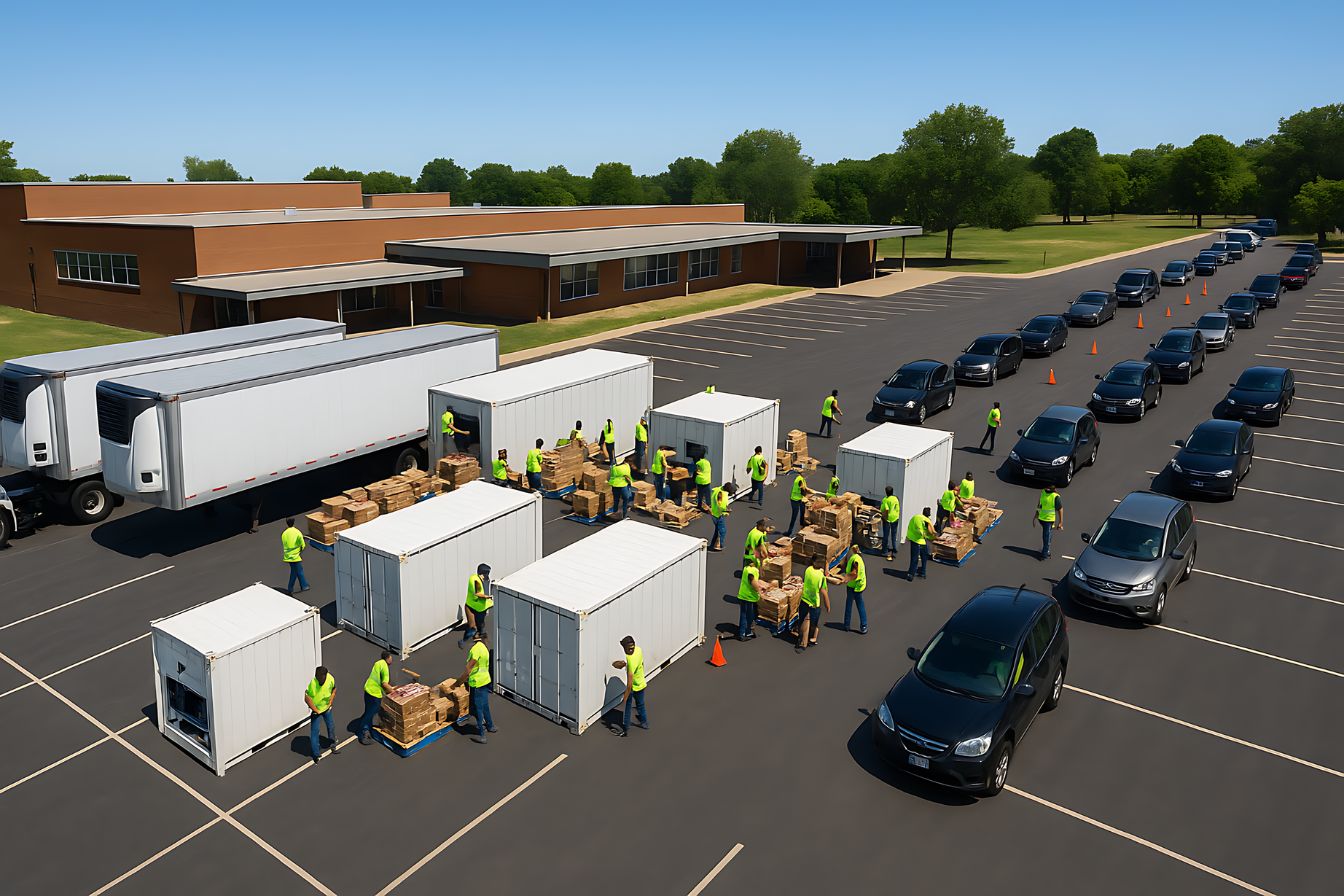
In some cases, refrigerated containers serve as mobile command posts, providing both storage and workspace for coordinating logistics. They can also be equipped with temperature monitoring systems that send alerts if conditions inside change unexpectedly, ensuring that no vital supplies are lost.
Medical Supply Protection
One of the most critical uses for reefer containers during disasters is the preservation of medical supplies. Many life-saving drugs must be stored at specific temperatures to remain effective. Insulin, certain antibiotics, vaccines, and plasma all require refrigeration. Without power, hospitals and clinics risk losing large quantities of these medications.
By using refrigerated containers, emergency medical teams can keep these items viable during transport and storage. Some containers can even be divided into temperature zones, allowing teams to store multiple types of medicine in one unit. In addition, the heavy-duty design protects contents from contamination, pests, and environmental damage.
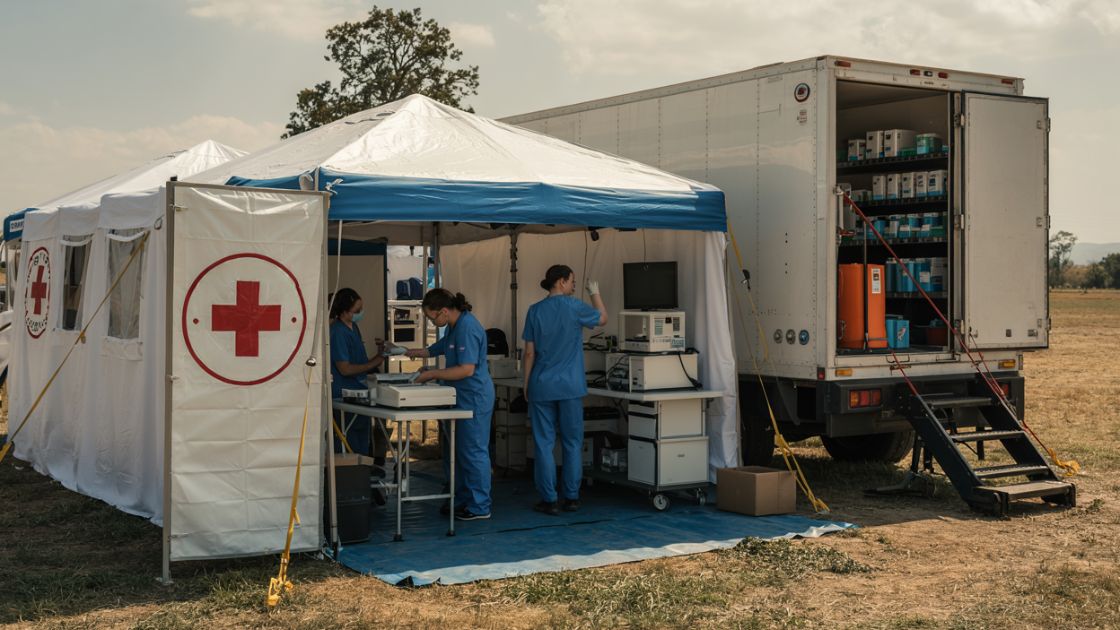
During large-scale emergencies, such as the COVID-19 pandemic or major hurricanes, refrigerated containers have been deployed worldwide to support hospitals and public health efforts. Their ability to maintain consistent temperatures under any conditions has made them a vital part of crisis logistics.
Preserving Food and Water Supplies
When power outages stretch for days, access to fresh food becomes a major concern. Grocery stores, food banks, and distribution centers often face spoilage risks that can lead to shortages and waste. Refrigerated containers provide a way to safeguard perishable goods until normal operations resume.
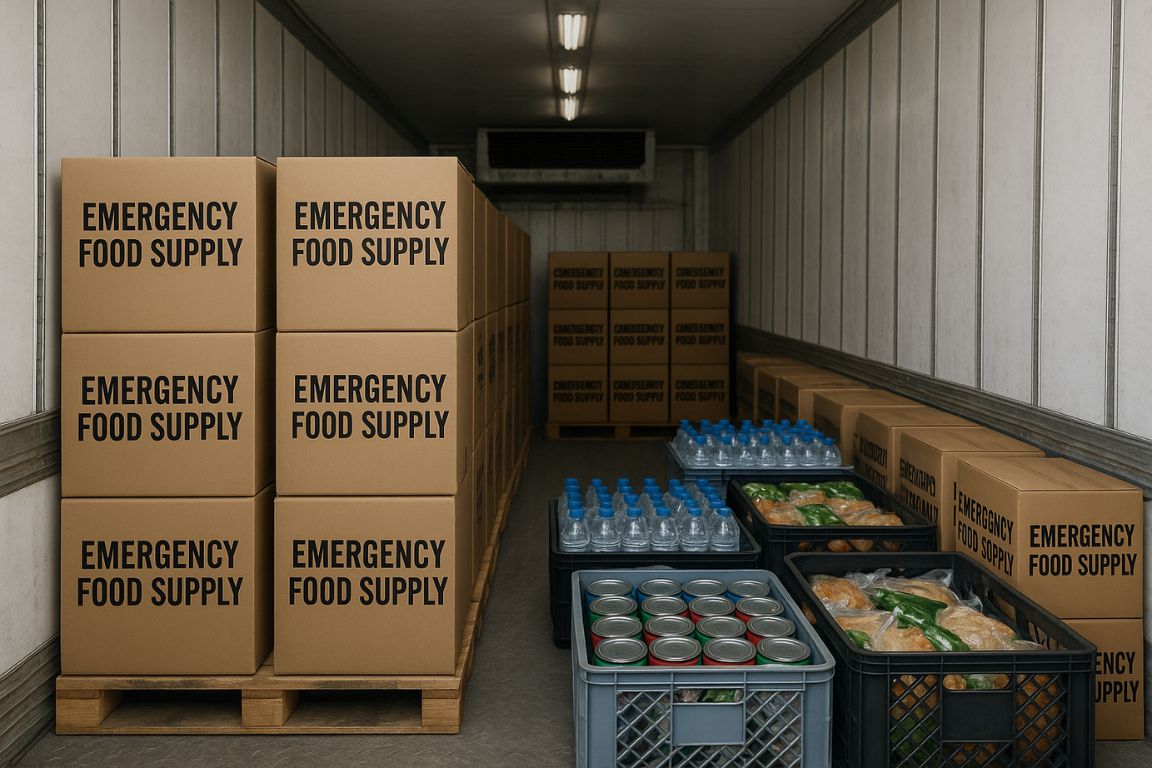
Local governments, food service companies, and nonprofit organizations often use refrigerated containers to support feeding programs during emergencies. They can store frozen meals, bottled water, produce, and dairy products safely. Once cooled and stocked, these containers act as temporary food warehouses.
For example, during wildfire season or severe storms, emergency shelters may rely on portable reefers to store food donations. A single 40-foot refrigerated container can hold several tons of provisions, feeding hundreds of people each day.
Reliable Cold Storage for Ice and Hydration
In disaster zones, ice is more than a comfort. It’s a necessity. It helps treat heat exhaustion, cool patients with fevers, and preserve supplies when smaller coolers aren’t enough. Yet producing and storing large quantities of ice without power can be impossible.
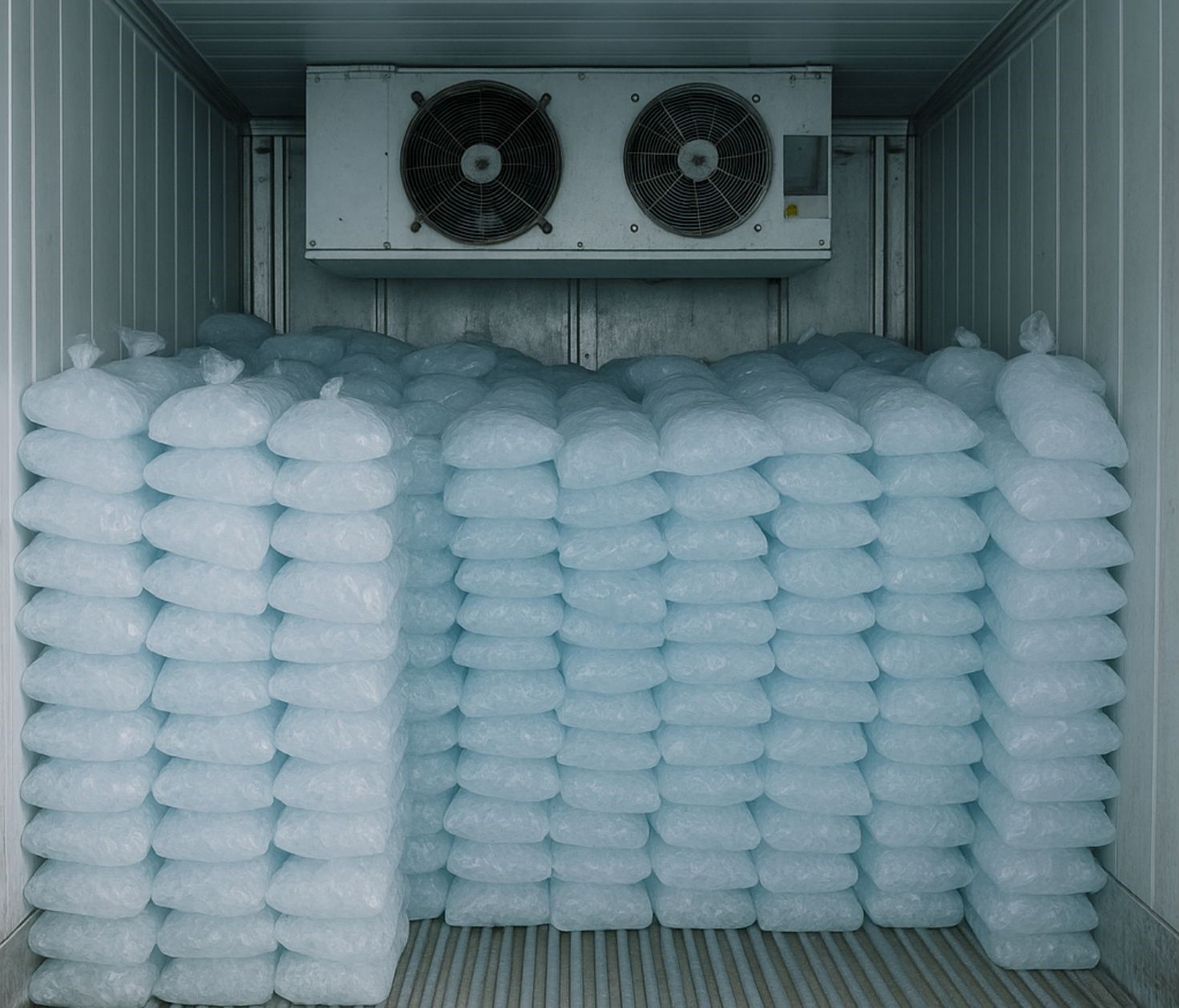
Freezer trailers allow aid organizations to maintain a steady ice supply in bulk, even under extreme conditions. Units can be preloaded with ice blocks or bags before a storm, then distributed strategically across affected regions. When the power grid fails, communities still have access to ice for cooling and hydration.
Easy Transport and Deployment
Mobility is one of the biggest advantages of refrigerated containers. They can be transported by truck, rail, or ship, allowing rapid movement between staging areas and disaster sites. Because they’re built from standard shipping containers, they’re easy to handle with cranes and forklifts. And a 20ft refrigerated shipping container can fit almost anywhere.
Deployment is simple: once the container arrives, it only needs a flat surface and a power connection or generator. The refrigeration unit starts immediately, and temperatures stabilize within minutes. This speed is critical when every hour counts.
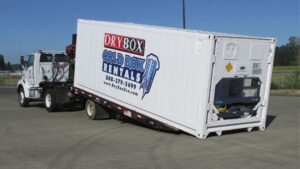
Durable and Secure in Harsh Conditions
In a disaster environment, equipment must withstand rough handling, debris, and extreme weather. Refrigerated containers are built from heavy-gauge steel that resists impact and corrosion. Their sealed design protects contents from water intrusion, pests, and dust.
Unlike temporary coolers or tents, a refrigerated container provides a secure, lockable environment for valuable goods. This makes them ideal for storing not just perishable food and medicine, but also supplies like dry ice, batteries, and emergency rations that must be kept safe from theft or tampering.
Sustainable Power Solutions
Modern disaster response also focuses on sustainability and fuel efficiency. Many refrigerated containers can run on renewable energy systems, including portable solar arrays and hybrid battery setups. These technologies reduce the dependence on diesel fuel, making relief operations cleaner and more sustainable.
Hybrid systems can switch between generator power and solar charging, extending run times and lowering emissions. This approach not only benefits the environment but also improves safety by reducing the need for fuel transport in unstable regions.
Building a Better Prepared Community
Preparedness is about more than stockpiling supplies. It’s also about creating systems that can adapt under pressure. Municipalities, hospitals, and aid organizations that integrate refrigerated containers into their disaster plans are better equipped to protect their communities.
Some local governments keep a fleet of reefers ready for deployment during storms or heatwaves. Others partner with container rental companies that can deliver units on short notice. Schools, universities, and private companies also use refrigerated containers to safeguard food and medicine during planned outages or emergencies.
Having reliable cold storage readily available means fewer losses, safer food distribution, and faster recovery times. Communities that invest in refrigerated containers for sale or rentals build resilience into their infrastructure, ensuring they can respond effectively no matter how severe the crisis.
Refrigerated containers have proven themselves as one of the most dependable tools in disaster preparedness. They protect essential supplies, extend the reach of relief efforts, and give communities the power to recover faster after crisis events.
In a world where extreme weather and emergencies are increasingly common, portable cold storage isn’t just a convenience—it’s a necessity. By keeping ice, food, and medicine cold when the grid goes dark, refrigerated containers help preserve life and stability in the moments that matter most.
If you’re looking for a reefer container for sale or reefer trailer rental, fill our our quote form or call 360-266-8211.


